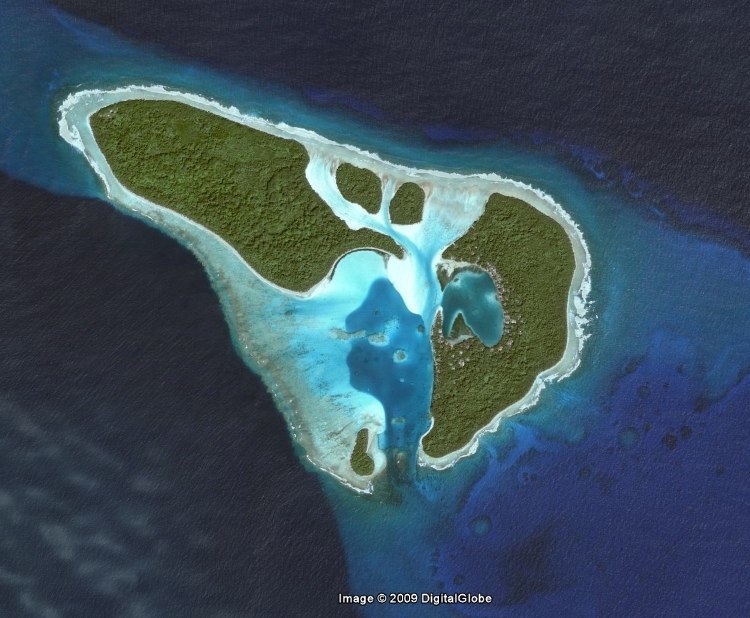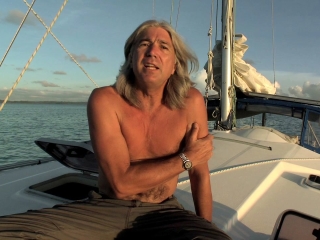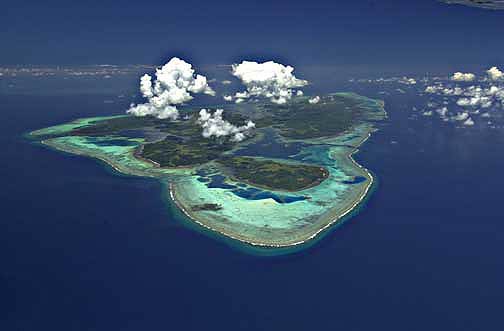The plight of submerging small island states gets a rare turn in the spotlight with an award-winning documentary, “Someplace with a Mountain”.
When Californian Steve Goodall decided to embark on a sailing trip around the world, he never expected to stumble on a climate-change crisis in action – and certainly not to become an award-winning filmmaker. The renewable energy specialist and former oil company employee dropped everything to set sail in 2004, a decision that would change his life forever.
After a three-year journey through the waters of the Caribbean, with stopovers in Panama, Venezuela and assorted other countries, Steve steered his 34-foot sailboat out to sea for a longer adventure. From the remote Galapagos Islands, he sailed westward across the ocean to explore the small countries of the South and North Pacific.
The many low coral islands he saw as he made his way across the Pacific held a special significance for him – as a dedicated activist for renewable forms of energy, Steve was keenly aware of the challenges these places would face if predictions of rising sea levels came to pass.
One isle in particular was, for him, a striking example of a worst-case climate change scenario. Perhaps the most tragic part was that the inhabitants had no understanding of the broader climatological issues impacting the globe. They were simply being swamped, and “why” was a mystery.
Poluwat is part of a string of places that few in the West are familiar with – Federated States of Micronesia, the Caroline Islands, and finally, the State of Chuuk. Located in the remote and virtually empty space east of the Philippines and north of Indonesia, it’s not hard to imagine why little attention has been paid to these far-flung isles.
However, the issues facing this region have a grave significance for the rest of the planet. In the case of Poluwat, salty ocean waters have been flooding far past the islands’ coasts, destroying arable land and freshwater supplies along with resident’s homes.
Steve knew that their story needed to be shared, and with a hand-held camera, began interviewing those affected. This would later become the foundation for his 2010 film narrated by Chevy Chase, “Someplace With a Mountain”.
After travelling to Yap, the largest community in the Caroline Islands, Steve secured residency for the people of Poluwat in the event that their own island becomes uninhabitable. Moving homelands will not come cheap, however – Yap estimates a $5-10M cost for absorbing 1,500 new residents.
Steve’s motivation for the film was to raise awareness of Poluwat’s plight and help raise funds to secure the safety of its people. His is a message that the world should be paying attention to – but, despite the accolades “Someplace With a Mountain” received, actual aid has not been forthcoming.
While low-lying coral atolls may be the first landmasses to experience the ravages of climate change, if some predictions are correct, it won’t be long after that the major coastal cities will be besieged by devastating floods and face the displacement of millions. Poluwat could, in the end, become a valuable test scenario for the management of climate change refugees – certainly a cause worth funding.
Read more about this story: Santa Rose Press Democrat





